EDIT NIKOLLI
2 weeks ago, Movement for University activists distributed an online questionnaire regarding the new academic year progress and issues. Contrary to the Minister of Education statements, 70% of the respondents were dissatisfied with online classes.
On November 24th, the Minister of Education, Evis Kushi, stated that “Universities are prepared for online education, and the situation with technological devices and software is improving by the day”.
However, numerous students spoke out against online education, which, according to them, had an adverse impact on both the study process, and their economic situation.
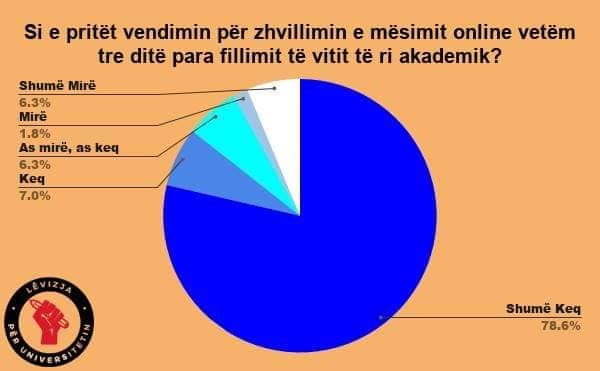
Questionnaire on online classes
Activists of the Movement for University surveyed around 300 students about their overall experience regarding online education. It must be noted that the decision to carry out online classes was made 3 days prior to the beginning of the new academic year. The questionnaire revealed that 70% of students were dissatisfied with online education.
Such dissatisfaction was shown during a protest, which took place before the Ministry of Education, Sports and Youth, on 2 – 4 November.
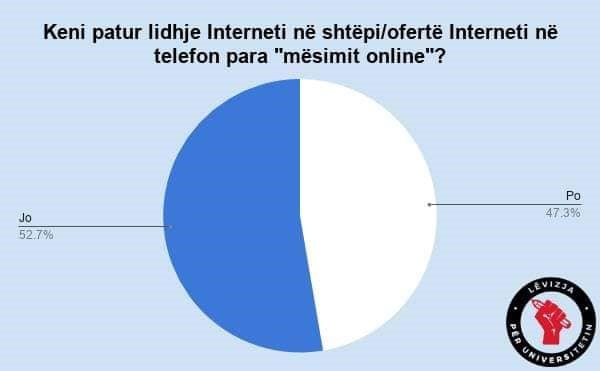
Questionnaire on online classes
50% of the students, who were asked whether they had Internet connection at home, or used mobile data before online classes, answered “No”.
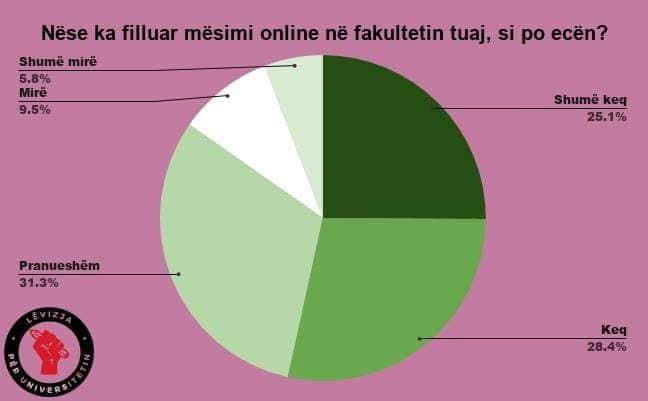
Questionnaire on online classes
Besides being dissatisfied with online education, students maintained that they encountered multiple challenges with online platforms used by universities.
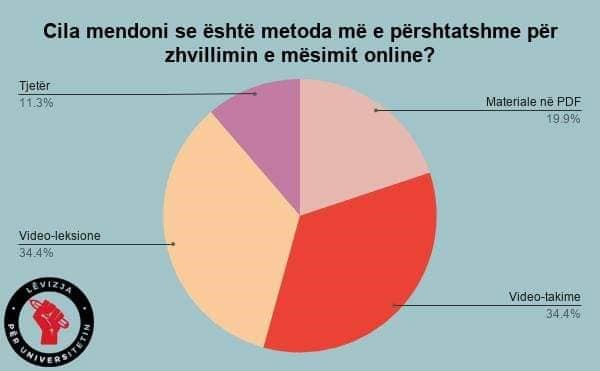
Questionnaire on online classes
30% of students thought that video lectures comprised the most suitable method of online education, and another 30% believed that either video meetings or student – lecturer connection were a good way of online learning.
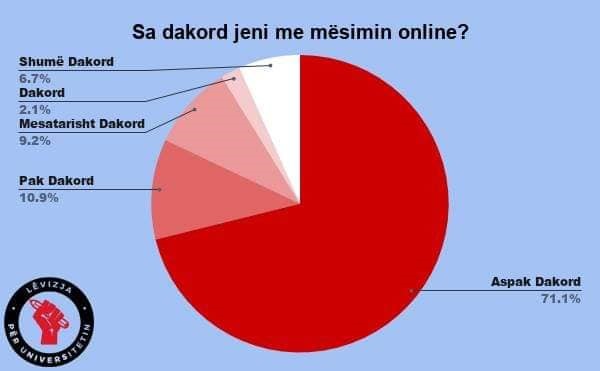
Questionnaire on online classes
A month since the start of the online academic year, the majority of surveyed students stated that online education was their least favorable method of learning.
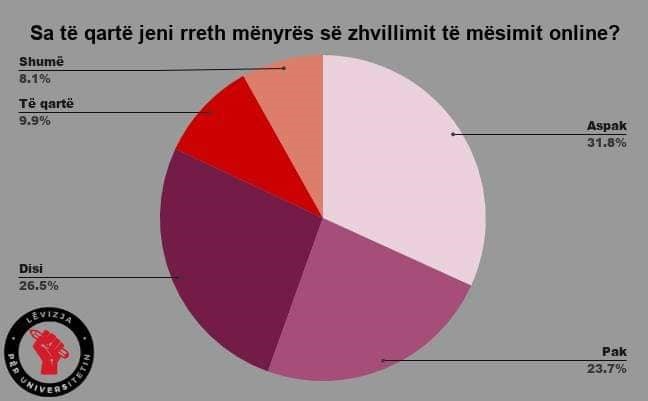
Questionnaire on online classes
To the question of whether they were clear about how online education worked, only 9% of the students answered positively, while over 30% of them were unclear.
In terms of lockdown and its impact on students’ economic situation, 40% of students responded that the impact had been either “considerable” or “substantial”.
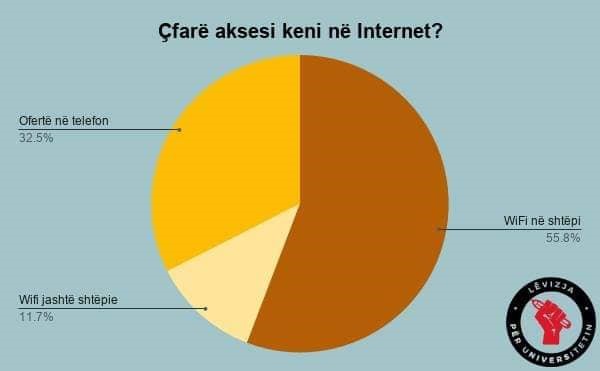
Questionnaire on online classes
Around 50% of students responded that they had Wi-Fi connection at home, and the remainder, about 30%, accessed online education through mobile data.
A.B, a Construction Engineering student, stated:
“Although I didn’t complete the questionnaire, online education for me as a Construction Engineering student is challenging, for I study exact sciences and I must be at the university in person for certain assignments”.
On November 23rd, considering the increasing number of COVID-19 infections, a decision was made for universities to carry out online classes until a further notice.
An expert on education issues, Ndriçim Mehmeti, expressed his opinion regarding online education during a television interview:
“Article 60 of Law No. 80 2015 provides for solely two types of classes, namely full-time and extended classes. Given the pandemic, investments should have been made in schools during April. Why weren’t universities opened? Because they did not have the proper hygiene and sanitation conditions to fulfil anti-COVID measures.”
As far as university online classes and complaints by lecturers and students are concerned, Migen Qiraxhi from Qëndresa Qytetare (Civic Resistance) organization made his observations during a television interview:
“There is a multitude of complaints coming from all groups, lecturers and students included, who cannot properly access online education, hence the low participation. Nonetheless, there are many lecturers that cannot access online education at all.”- Qiraxhi stated.
In late November, Movement for University activists presented a petition calling for the Ministry of Education, Sports and Youth to provide free Internet to students. All students must be provided with equal access to lectures, especially considering the added economic burden that fees would pose.





